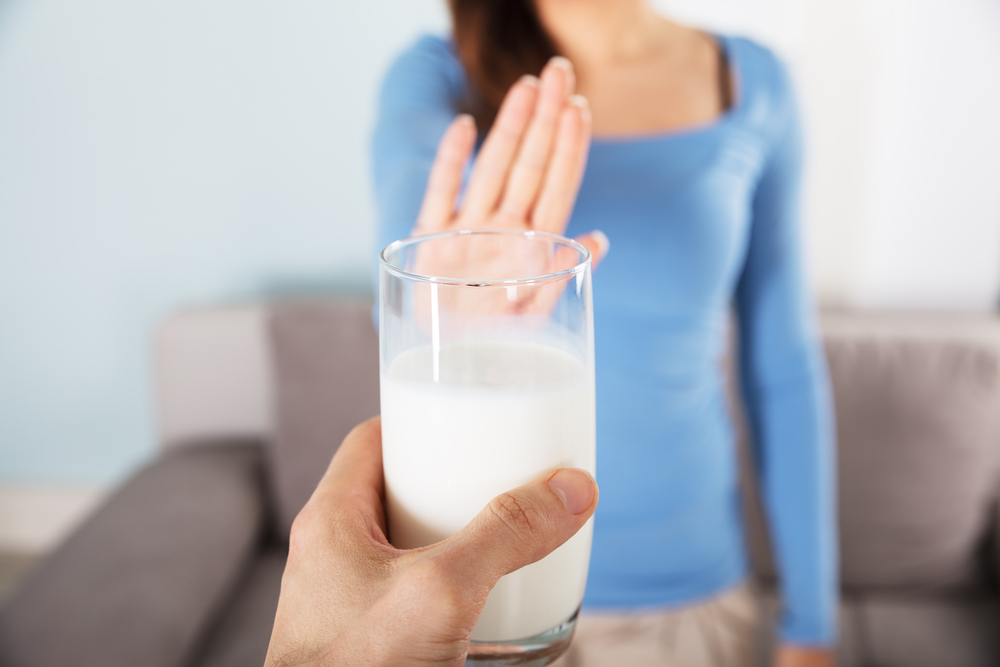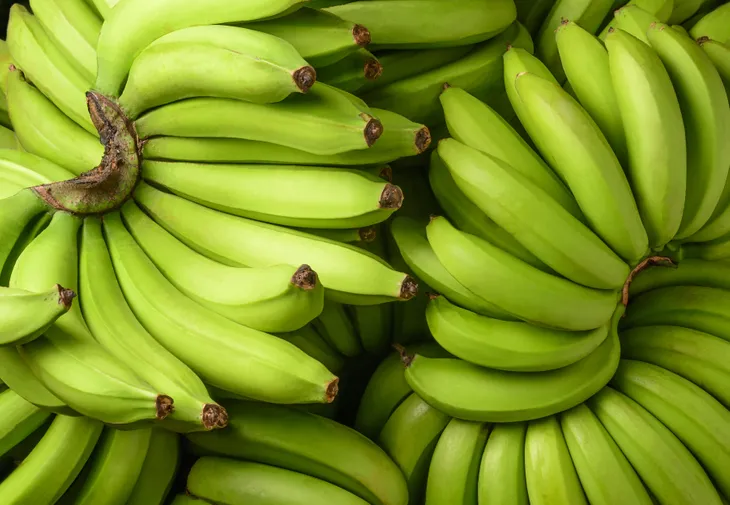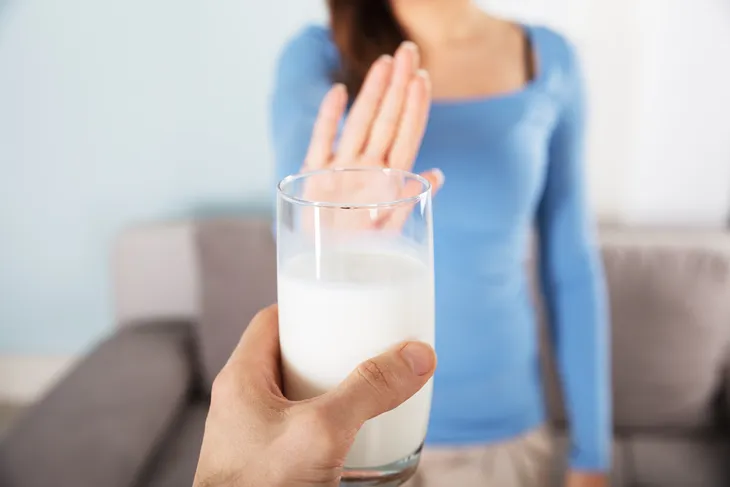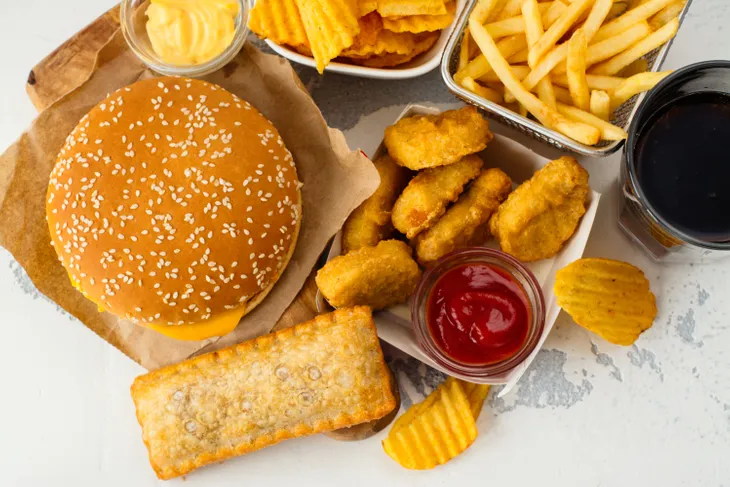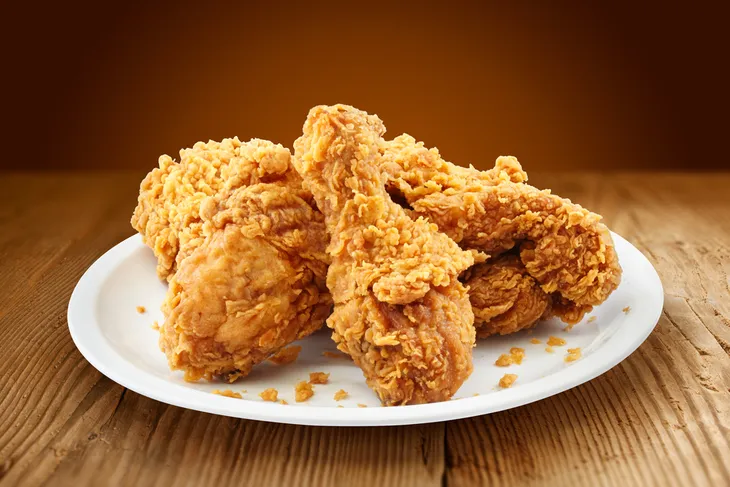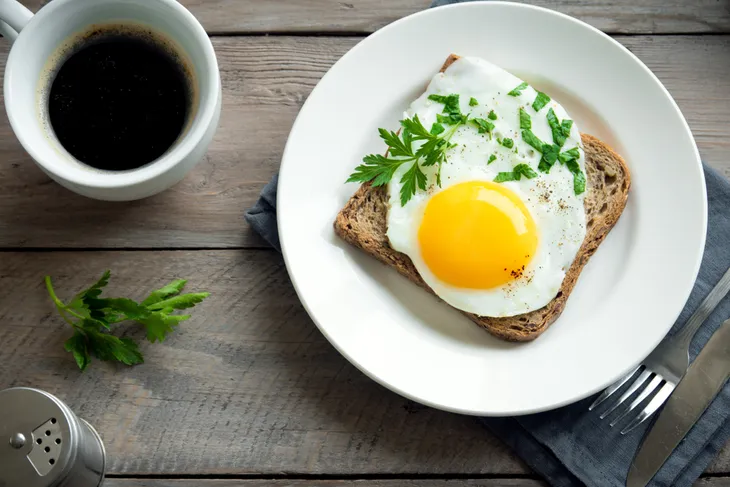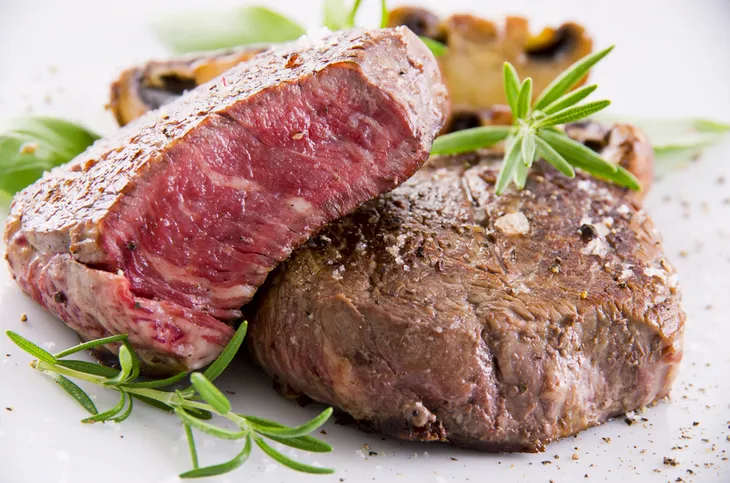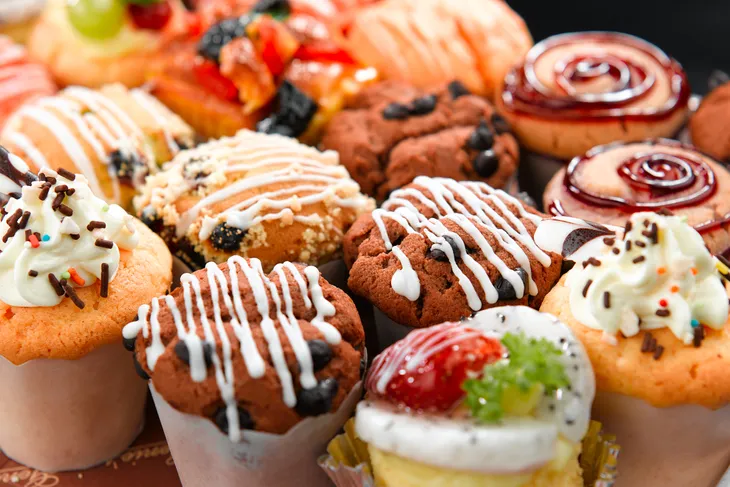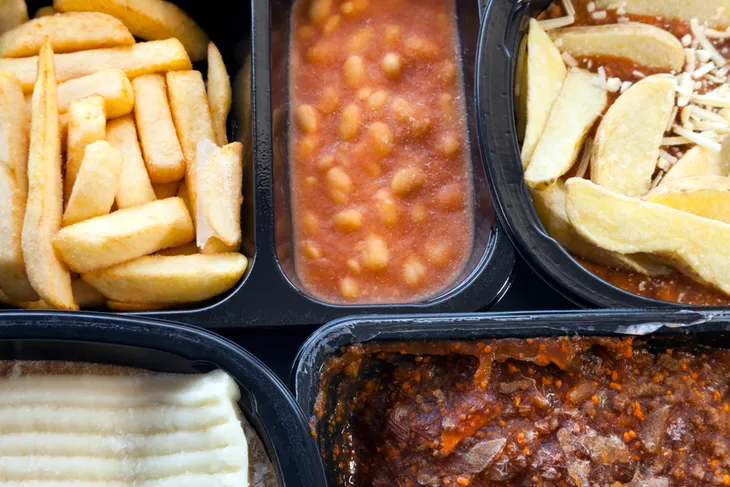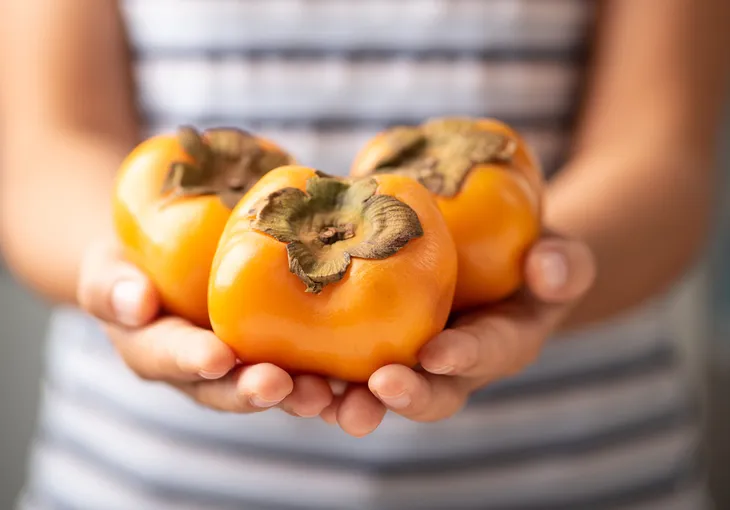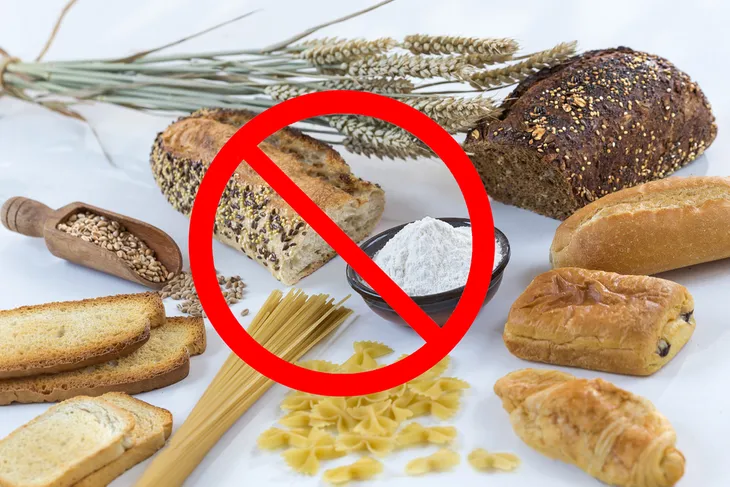There’s nothing comfortable about constipation, and while it can be embarrassing when it does happen, just remember that it’s a common problem. It happens to about 27-percent of adults who will also experience other symptoms like bloating and gas. In fact, the older a person is and or inactive, the more likely they are to suffer from it. According to the National Institute of Diabetes and Digestive and Kidney Diseases (NIDDK), constipation is defined as having less than three bowel movements in a single week.
In order to avoid constipation, we should first understand what foods are most likely to cause it. We’ve compiled a list of 13 foods that can cause constipation. Take a look…
Want diet & nutrition content delivered straight to your inbox? Sign up for our exclusive diet & nutrition newsletter!
Unripe Bananas
The keyword here is unripe because ripe bananas actually have the opposite effect. Ripe bananas can actually help prevent constipation whereas unripe bananas are a known cause. The reason behind this is because “unripe bananas contain more resistant starch, a compound that is harder for the body to digestion,” explains Healthline. As the bananas ripens, “resistant starch is converted into natural sugars, which are much easier to digest.”
Unripe bananas tend to contain higher amounts of tannins, says Healthline, a compound that helps food move through the digestive system.
When examining whether or not a bananas is ripe, check its color. Ripe bananas are usually yellow with some signs of brown spotting. They should also be very easy to peel.
Dairy
Dairy is a common culprit when it comes to digestive problems, particularly for toddlers, says Mark Spielmann, RD, nutrition manager at La Rabida Children’s Hospital in Chicago when talking to Everyday Health. This is due to the fact that it is high in fact and low in fiber.
According to WebMD, people who experience constipation after eating dairy don’t necessarily have to give it up entirely. You likely just need to cut back a bit. To avoid constipation, WebMD advises eating less dairy or switching up your dairy sources. Try eating yogurt with probiotics, “live bacteria that’s good for your digestive system,” says WebMD.’
Fast Food
You probably don’t need us to tell you that fast food isn’t good for you, but just in case you need a friendly reminder, here it is: fast food is bad! It’s particularly our digestive system because it is often high in fat and low in fiber. This is the most surefire recipe for constipation because it causes our digestion to slow down.
Another reason fast food causes digestion is because when we eat that type of food, we’re less likely to eat fiber-rich foods like fruits and vegetables.
Fast food also contains lots of salt, “which can lower the water content of stool, drying it up and making it harder to push through the body,” says Healthline. “This happens when you eat too much salt, as your body sucks up water from your intestines to help compensate for the extra salt in your bloodstream.”
Fried Food
The biggest problem with fried food is that they are extremely high in fat which is hard for the body to digest. This is a recipe for constipation. “When food moves through your colon slowly, too much water can be taken out of it. That makes for a hard, dry stool,” says WebMD.
Some of the worst fried foods are those greasy foods like french fries, doughnuts, onions rings, or even heavily breaded foods like fish or chicken. These foods will clog up the digestive tract and lead to constipation. Instead of eating deep-fried foods, choose cooking methods like steaming and broiling.
Eggs
Eggs are a great source of protein which is why they are often touted as the perfect breakfast food to get the day started. Unfortunately, they are low in fiber. This doesn’t mean we should stop eating eggs for breakfast, but rather just be conscious about eating them alongside some fiber. For example, WebMD suggests making an omelette with spinach and tomatoes.
Red Meat
While there are some benefits to eating red meat, there is such a thing as too much meat. The key to this food is moderation because red meat has been known to make constipation worse. The main reason for this is because it contains very little fiber which we need to bulk up stools and keep em moving.
The second reason red meat causes constipation is because it can indirectly reduce a person’s daily fiber intake by “taking the place of higher-fiber options in the diet,” says Healthline. People who eat large portions of meat at each meal are more likely to reduce the amount of vegetables, legumes, and or whole grains that they eat in the same sitting. As a result, meat indirectly affects the amount of fiber a person eats.
The source also points out that unlike other sources of meat (i.e., fish and chicken), red meat tends to be higher in fat which takes longer for the body to digest, leading to constipation. If you’re someone who suffers from constipation, it may be a good idea to reduce the amount of red meat in your diet and replace it with more protein and fiber-rich foods like lentils, peas, and beans, adds the source.
White Bread
There are many reasons why white bread should be avoided and most of them have to do with the fact that processed grains (including white bread, white rice, and white pasta) have been stripped of any and all nutritional value, says VeryWell Health. White bread can actually cause constipation because it is made with low-fiber white flour. When our diet lacks fiber, it sets the stage for hard, dry stools that are difficult to pass. This is when constipation happens.
A better choice would be to eat whole-grain bread. This will make all of those trips to the bathroom, much smoother.
Alcohol
When it comes to alcohol we’re often warned about the bad hangover it can cause, and while that is true, we’ve got another warning to add to the list! Alcohol can cause constipation. Drinking alcohol in large amounts increases the amount of fluids lost through urine, leading to dehydration. “Poor hydration, either due to not drinking enough water or losing too much of it through urine, is often linked to an increased risk of constipation,” explains Healthline.
It’s important to note that there aren’t any studies to back the claim up that alcohol causes constipation. In fact, there are some people who report experiencing diarrhea after a night of drinking. The effects can vary from person to person. The best line of defense is to drink in moderation and always consume a glass of water for every serving of alcohol.
Caffeine
Anyone who drinks coffee on a regular basis can attest to the fact that a couple cups of java in the morning can send a person running to the bathroom. While this is the more common effect of caffeine, it can have the opposite effect on some people, says WebMD.
“The caffeine in coffee and soft drinks can keep your body from holding onto water, and you need H2O to stay regular,” explains the source. If you’re already struggling with constipation, it might be a good idea to avoid drinking coffee until things pass.
Pastries
It’s fun to indulge in a treat every now and then, but desserts like pastries and cookies should only be eaten on occasion. Lyssie Lakatos, RD, registered dietician explains to Everyday Health that a lot of the problems with treats like cookies, pastries, and even most crackers are due to the three major strikes, “they’re low in fiber, low in fluid, and high in fat.” Eating these types of foods on a regular basis can cause constipation, or make it worse for someone who is already struggling with regular bowel movements.
If you’re really craving something sweet, try eating sweet tasting fruit like strawberries with some yogurt, says WebMD. Fresh fruit is great for providing constipation relief.
Frozen Dinners
Not surprisingly, frozen dinners are another major “no-n0” for constipation because they don’t provide any nutritional value. While they’re super convenient and time-friendly, they won’t do anything for your health. “Frozen dinners are almost always low in fiber and often high in fat,” says Tammy Lakatos, RD, CDN, CPT, a registered dietitian and certified personal trainer in New York to Everyday Health. “Also, they are usually high in sodium, which ties up water to dilute the salt, keeping it from pushing waste through the body.”
Persimmons
You probably haven’t ever heard of this fruit before, but it’s actually quite popular in Eastern Asia. While it’s super tasty, it has been known to cause constipation in some people.
Healthline says there are different varieties of persimmons, but most are categorized as either sweet or astringent. The astringent persimmons contain lots of tannins, “a compound thought to reduce gut secretions and contractions, slowing down bowel movements,” writes Healthline. If you’re someone who experiences constipation after eating persimmons, just be mindful about not eating too many.
Gluten
Gluten is a protein found in many foods, mainly grains like wheat, barley, rye, spelt, kamut, and triticale. It has been reported that people experience constipation after eating foods that contain gluten. In addition to this, it’s not uncommon for some people to have an intolerance to gluten. This condition is known as celiac disease, says Healthline.
People with celiac disease must avoid eating gluten because when it causes their immune system to attack their gut. This can result in harmful damage. According to Healthline, celiac disease is relatively rare. It occurs in an estimated 0.5 to 1-percent of the population in most countries. Many of these people might not even be aware of their condition. One of the most common symptoms is chronic constipation after consuming gluten.
Another possible explanation for experiencing constipation from gluten is a non-celiac gluten sensitivity (NCGS) or irritable bowel syndrome (IBS). Both of these conditions can cause a person’s gut to react to gluten. If you suspect gluten is causing constipation, Healthline suggests speaking to a healthcare professional in order to rule out celiac disease.
